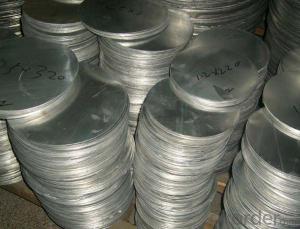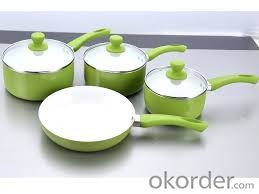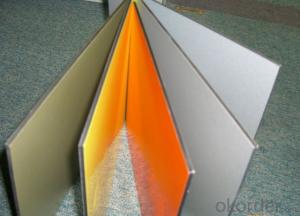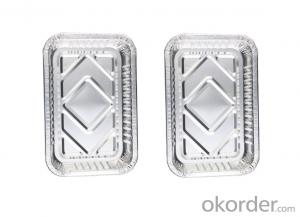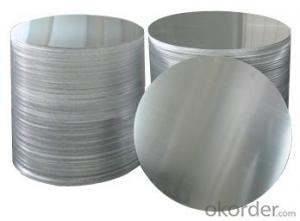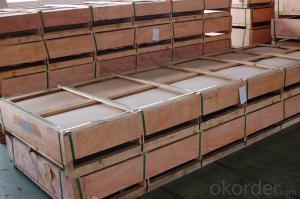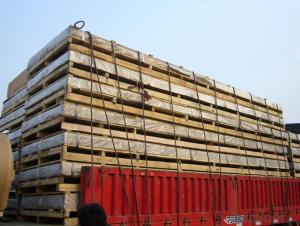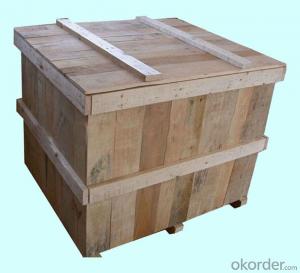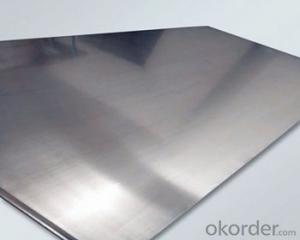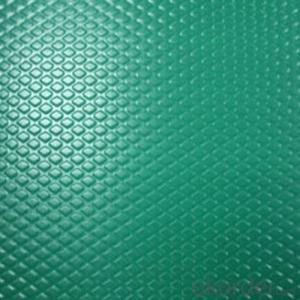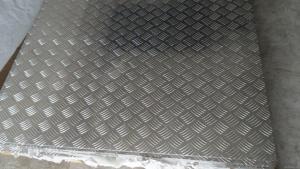Diamond Tread Plate Aluminum Sheets - Die Cast 1050 1060 1070 1100 1200 Aluminum Plate for Aluminum Cookware
- Loading Port:
- Tianjin
- Payment Terms:
- TT OR LC
- Min Order Qty:
- 3 m.t.
- Supply Capability:
- 600 m.t./month
OKorder Service Pledge
OKorder Financial Service
You Might Also Like
Specification
Die Cast 1050 1060 1070 1100 1200 Aluminum Plate for Aluminum Cookware
Professional aluminum product manufacturer
We have our own plant , Laboratory and engineer
Over 100 models can totaly satisfy your request
As powerful and stronger factory, our aluminum quality is very stable and reliable
2 years warranty period
Specifications:
Thickness:0.5mm-6.0mm
Width:100mm-900mm
Surface:Bright & smooth surface, not defects like white rust, oil patch.
Product Information :
Product | Aluminum Circle |
Alloy | 1050 1060 1070 1100 1200 |
Temper | O, H12, H14, H18 and H24... |
Thickness | 0.5mm-6.0mm |
Diameter | 100mm-900mm |
Lead Time | Within 30-45 days after receiving deposit |
Packing | Standard Exporting wooden pallets or based on customer requirement |
Material | Using high-tech machinery utilizing premium grade Aluminium Coil. Customized according to the needs and demands of the clients these can be availed at different technical specifications. |
Surface: | Bright & smooth surface, free from defects like white rust, oil patch, edge damage. |
Application | Aluminium Circles are used in Reflective Sign Boards, Road Furniture, Utensils, Sand witch Bottom, Cooker, Non-Stick etc. |
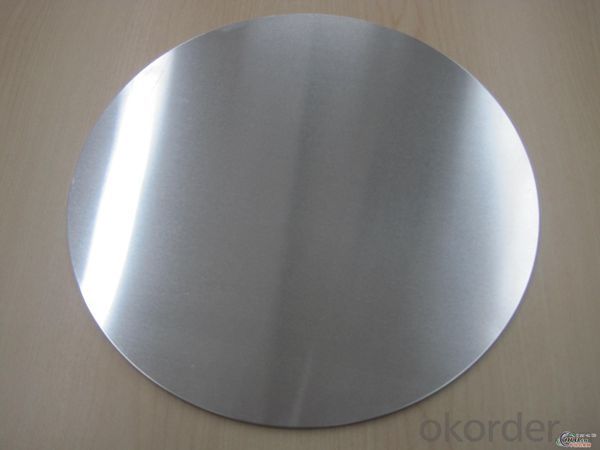
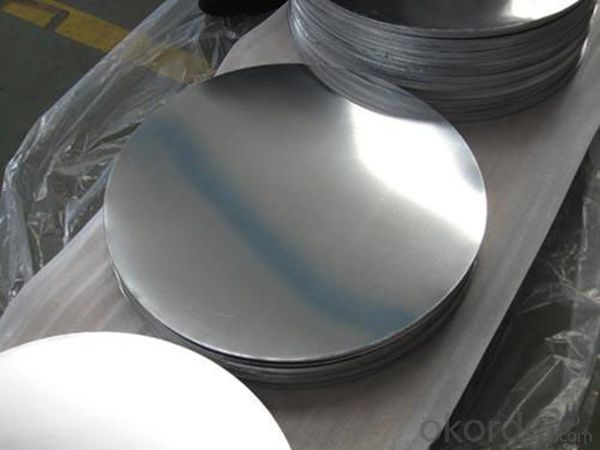
- Q: What are the limitations of using aluminum sheet?
- Using aluminum sheet in various applications comes with several limitations. Firstly, compared to steel or titanium, aluminum is a relatively soft metal. This means it is more prone to scratches, dents, and deformation when subjected to heavy loads or impacts. As a result, it may not be suitable for applications that require high strength or resistance to damage. Secondly, aluminum has lower thermal conductivity than other metals. This can be a disadvantage in applications that require efficient heat transfer, such as heat exchangers or cooling systems. Thirdly, aluminum is susceptible to corrosion. Although it has a natural oxide layer that provides some protection, it can still corrode in certain environments, especially in the presence of moisture or acidic substances. This limits its use in applications where corrosion resistance is crucial, such as in the marine or chemical industries. Additionally, compared to other options, aluminum is a relatively expensive material. Its production and extraction processes require significant energy and resources, which contribute to higher costs. Therefore, it may not be the most cost-effective choice for some applications. Lastly, aluminum has limited compatibility with certain substances. It can react with certain chemicals, leading to degradation or contamination. Therefore, it may not be suitable for applications where it will come into contact with substances that can cause adverse reactions. In conclusion, although aluminum sheet has numerous advantages such as its lightweight nature, good electrical conductivity, and ease of fabrication, it is important to consider its limitations when choosing it for specific applications.
- Q: Are aluminum sheets suitable for beverage cans?
- Yes, aluminum sheets are suitable for beverage cans. Aluminum is a widely used material in the beverage industry due to its unique properties. It is lightweight, corrosion-resistant, and provides an excellent barrier against light, oxygen, and moisture, which helps to preserve the quality and freshness of the beverage. Additionally, aluminum is easily formable, allowing for the production of various can shapes and sizes. It is also recyclable, making it an environmentally friendly choice. Overall, aluminum sheets are an ideal material for beverage cans, meeting both functional and sustainability requirements.
- Q: Where is the difference between the 5052 aluminum plate and the 1060 Aluminum plate?
- 5052 is aluminium magnesium alloy, 1060 is pure aluminium
- Q: 2mm aluminum welding with oxygen welding or argon arc welding good?
- Before welding need cleaning with acetone wire and base metal surface oil and oxide layer, according to welding tungsten diameter, filler wire diameter selection of appropriate welding parameters (base current, peak current, pulse width, pulse duration, pulse frequency, duty ratio, etc.).Oxygen acetylene (or oxygen propane) flame welding, flame welding due to large heating area, directly lead to weld coarse grains, degree of weld oxidation is lower than that of AC TIG welding effect. The weld strength and mechanical properties are lower.
- Q: Is it possible to use aluminum sheets in the manufacturing process of solar panels?
- <p>While aluminum sheets can be used in the construction of solar panels, they are not the primary material for making the solar cells themselves. Aluminum is typically used for the frame or backsheet to provide structural support and protection. The actual solar cells are made from materials like silicon, which is capable of converting sunlight into electricity. So, while aluminum plays a role in the assembly of solar panels, it is not used to create the photovoltaic cells that generate power.</p>
- Q: How does the thickness tolerance of aluminum sheet affect its usability?
- The thickness tolerance of aluminum sheet plays a significant role in determining its usability. The thickness tolerance refers to the acceptable deviation from the specified thickness of the sheet. It is typically expressed as a range or a plus/minus value. A tighter thickness tolerance ensures that the aluminum sheet meets the desired specifications consistently. This is crucial for applications where precise dimensions are required, such as in aerospace, automotive, and construction industries. In these applications, even a slight deviation in thickness can negatively impact the performance and functionality of the product. For instance, in aircraft manufacturing, the thickness tolerance of aluminum sheets used for structural components is highly critical. A thin sheet might compromise the structural integrity, while a thicker sheet could lead to excess weight, affecting fuel efficiency. Similarly, in the automotive industry, precise thickness tolerance is essential for ensuring compatibility and fitment of various components. On the other hand, a looser thickness tolerance can be acceptable for applications where precise dimensions are not as critical. For example, in general fabrication, signage, or decorative purposes, a wider thickness tolerance may not significantly affect the usability or appearance of the aluminum sheet. Additionally, the cost of manufacturing aluminum sheets with tighter thickness tolerances is typically higher due to increased precision and quality control measures. Therefore, the required level of tolerance should be balanced with the intended use and cost considerations. In conclusion, the thickness tolerance of aluminum sheet directly affects its usability, particularly in industries requiring precise dimensions. It is essential to select the appropriate tolerance level to ensure the sheet meets the required specifications, maintaining the desired performance and functionality of the final product.
- Q: Can aluminum sheets be easily shaped or bent?
- Indeed, aluminum sheets possess a remarkable capability to be effortlessly molded or flexed. Renowned for its exceptional malleability and ductility, aluminum exhibits a remarkable propensity to be readily fashioned into diverse contours and curves. The manipulation of this versatile metal can be accomplished through an assortment of techniques, encompassing rolling, pressing, and even manual utilization of tools. Given its pliability, aluminum emerges as the preferred choice within industries such as automotive, aerospace, and construction, wherein the fabrication of intricate shapes and bends is a common necessity. Moreover, the lightweight nature and inherent resistance to corrosion further enhance aluminum's suitability for shaping and bending endeavors.
- Q: Does exposure to weather conditions have an impact on the durability and integrity of aluminum sheets?
- <p>Aluminum sheets are generally resistant to weathering, thanks to a protective oxide layer that forms on the surface when exposed to air. This layer prevents further oxidation and corrosion, making aluminum durable even in harsh weather conditions. However, the rate of weathering can be influenced by factors such as pollution, temperature fluctuations, and the presence of aggressive chemicals. While aluminum maintains its structural integrity well, it may experience some surface changes like patina formation over time, but these are mostly cosmetic and do not compromise the material's performance significantly.</p>
- Q: Can aluminum sheets be used for fencing?
- Certainly, fencing can make use of aluminum sheets. Aluminum, being a flexible substance, is both lightweight and long-lasting, as well as resistant to corrosion. It is frequently employed in fencing due to its capacity to withstand severe weather conditions, involving rain, snow, and UV rays. Aluminum sheets can be conveniently transformed into various fence styles and designs, such as picket fences, privacy fences, or decorative fences. Moreover, aluminum fencing necessitates minimal upkeep since it does not rust or decay like other materials including wood or iron. In general, aluminum sheets offer a splendid choice for fencing due to their durability, endurance, and aesthetic allure.
- Q: Is aluminum sheet resistant to UV rays?
- Indeed, aluminum sheet exhibits resistance to UV rays. By nature, aluminum develops a safeguarding oxide layer which functions as a shield against UV radiation. This protective layer aids in safeguarding the aluminum sheet from harm or deterioration caused by the sun's UV rays. Consequently, aluminum sheet proves to be an appropriate material for outdoor usage, enduring extended exposure to sunlight without experiencing fading or deterioration. Moreover, the reflective characteristics of aluminum also contribute to its resistance against UV rays, as it can effectively reflect a considerable portion of the sun's rays, diminishing heat absorption and the likelihood of damage.
Send your message to us
Diamond Tread Plate Aluminum Sheets - Die Cast 1050 1060 1070 1100 1200 Aluminum Plate for Aluminum Cookware
- Loading Port:
- Tianjin
- Payment Terms:
- TT OR LC
- Min Order Qty:
- 3 m.t.
- Supply Capability:
- 600 m.t./month
OKorder Service Pledge
OKorder Financial Service
Similar products
Hot products
Hot Searches
Related keywords
